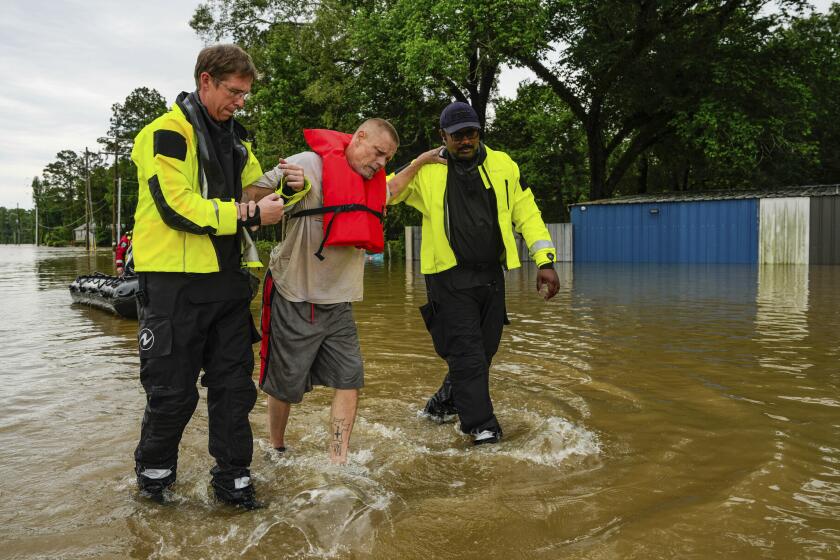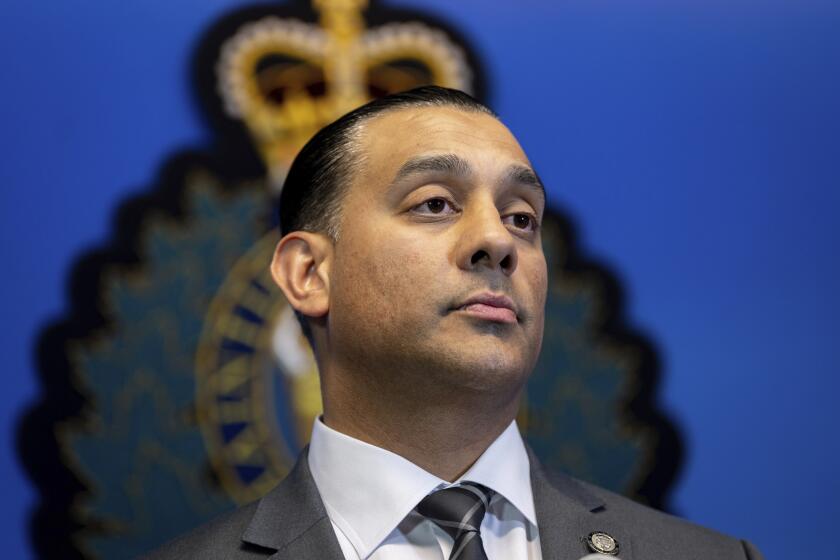Early Takeover by Gorbachev Told : Gromyko Discloses Move Before Death of Chernenko
Mikhail S. Gorbachev ran the Kremlin staff and presided over the Politburo during the final illness of the late Soviet President Konstantin U. Chernenko, Foreign Minister Andrei A. Gromyko disclosed in a speech released Monday.
Diplomats said, however, that Gromyko’s unusual speech, made March 12 when he nominated Gorbachev as general secretary of the party, indicated there may have been some resistance to the choice of the 54-year-old Gorbachev as the new Soviet leader.
Gromyko emphasized several times that the 10-member Politburo was unanimous in endorsing Gorbachev and accused unidentified “political enemies” of trying to drive a wedge into the Communist Party’s solidarity.
His speech, which was not printed in the newspapers but was issued in pamphlet form Monday, was interpreted by Western diplomats as an effort to squelch any opposition to the new leader from “old guard” elements in the party’s Central Committee.
Gromyko, 75-year-old dean of Soviet foreign policy, virtually ignored Chernenko and bestowed extraordinary praise on his successor.
Gorbachev took charge of the Central Committee secretariat, the party’s powerful headquarters staff, and chaired Politburo sessions in the absence of the ailing Chernenko, Gromyko said.
“He performed, without any exaggeration, brilliantly,” Gromyko said of Gorbachev, youngest member of the ruling body and symbol of a new generation.
“Mikhail Sergeevich (Gorbachev) is a man with a sharp and deep mind,” Gromyko added. “Those who know him, or who have met him at least once, will confirm this.”
The foreign minister, who has been a top Soviet official for more than 40 years, added: “He very well and very quickly catches the gist of events that are occurring outside our country in the international arena.
“I myself was often astonished by his ability to quickly and precisely strike to the heart of the matter and make conclusions--correct conclusions, party conclusions.”
The high praise may have been intended to blunt criticism of Gorbachev, who only came to the Politburo in 1980, from Central Committee members of Chernenko’s generation.
Older and more conservative Kremlin leaders were reported to have blocked Gorbachev’s elevation to the top job after the death of Yuri V. Andropov in February, 1984. Chernenko was selected instead after a three-day intra-party struggle.
In an unusual appeal for Kremlin unity, Gromyko said that “political adversaries” of the Soviet Union are always looking for splits in the party’s leadership. The Politburo and the Central Committee, he said, should deny them that pleasure.
Meanwhile, the party newspaper Pravda warned the nation’s middle-level managers and other leading officials that they may get fired if their work and conduct do not meet party standards.
It cited the republic of Georgia as a place where there has been a crackdown on poor performance, reporting that 326 leading officials lost their jobs because of public disapproval and 512 other officials were reprimanded.
Another article called for a wide-ranging overhaul of Soviet economic programs.
“What has grown obsolete must be torn down, and we must adopt new methods of running the national economy,” said the article.
It said the management structure has become so cumbersome that there are 26 layers of bureaucracy over a farm manager.
The appearance of the Pravda articles a week after Gorbachev’s takeover in the Kremlin may be the forerunner of a national campaign against heavy-handed regulation and lack of accountability by officials.
The new leader has been associated with efforts to improve Soviet economic development through changes that provide good workers with greater rewards and give factories and other enterprises more autonomy.
More to Read
Start your day right
Sign up for Essential California for news, features and recommendations from the L.A. Times and beyond in your inbox six days a week.
You may occasionally receive promotional content from the Los Angeles Times.






